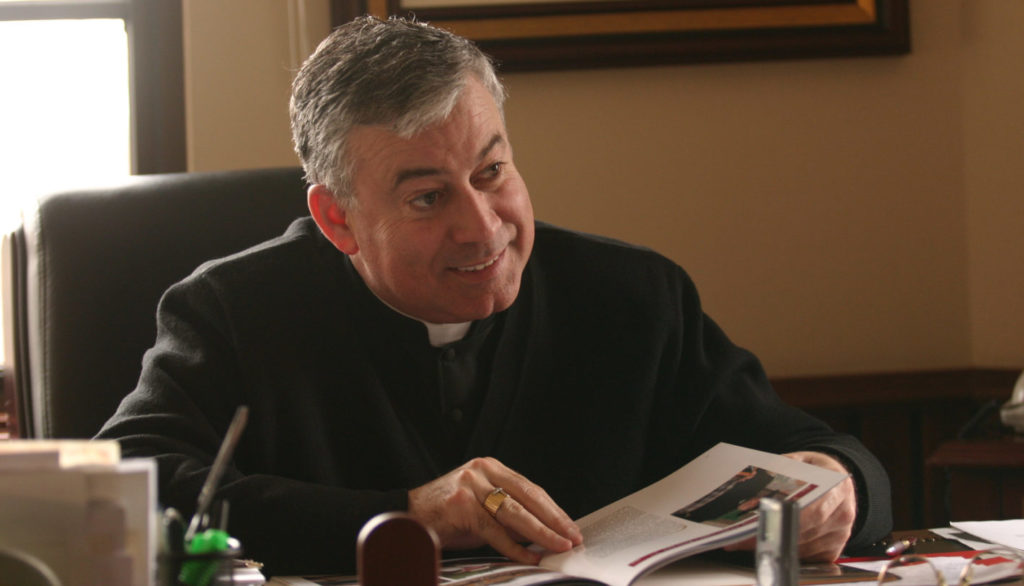In July 2021, the 155-member Constituent Convention began operating in Chile. They were elected in a democratic vote last May. They have a maximum term of 12 months to draft a new Constitution, which must be approved by 2/3 of its members. Sixty days later (year 2022) it must be submitted to a Plebiscite with a mandatory vote. If the majority of Chileans approve it, the Chilean Congress will enact it. On the other hand, if the majority (50 % +1) rejects it, the current Constitution would remain in force.
In recent months, various citizens' initiatives have been presented to the Convention. In October, representatives of various religious denominations (Catholics, Orthodox, Evangelicals, Muslims, Jews, Mormons, Pentecostals, Adventists and indigenous groups) submitted a common proposal with the ideas they considered fundamental to ensure religious freedom in the future Magna Carta. This was joined by several similar proposals, which gathered 80,000 signatures in support of this initiative.
In October 2021, the group of confessions proposed a document agreed by them, which established the essential elements of religious freedom in a modern and democratic state. They requested to favor the collaboration and cooperation between the religious confessions and the State; that the State does not have the competence to intervene in the conscience, nor in the life and development of the religious confessions, whose limits are the respect of the laws, the good customs, the morals and the public order; that it be recognized that "the confessions have the right and the duty to teach their own doctrine on society, to exercise their mission among men without hindrance and to give their moral judgment, even on matters concerning the social order, when the essential rights of the human person so require."
More specifically, they requested that "without prejudice to the right of the State to regulate civil effects, religious denominations have the right to regulate the marriage of their members, even if only one of the contracting parties is married". In the field of education, the State must respect the right of parents over the religious and moral orientation of their children's education. They should be able to promote and direct educational establishments for their children and the State must recognize such establishments and subsidize them.
Finally, they proposed that religious denominations have the right to promote social initiatives (hospitals, media, orphanages, shelters, soup kitchens, etc.) and that the State should recognize these works under the same conditions as other initiatives of this type promoted by other citizens (tax exemptions, subsidies, possibility of collecting donations, etc.).
In December, the confessions presented to the Convention a specific article to be studied by the commissions and then the plenary of the Convention. In January, the Bishop of the Diocese of San Bernardo, Juan Ignacio González - lawyer and canonist, member of the Standing Committee and coordinator of the legal team of the Episcopal Conference - intervened on behalf of the religious communities before the Convention's Commission on Fundamental Rights. At the beginning of February, this Commission rejected this proposal and approved a different one, drawn up by a group of Convention members; it does not include most of the proposals of the confessions. This proposal will have to be voted on by all the Convention members at an unspecified date.
We spoke with Bishop Gonzalez, who has first-hand knowledge of what happened.
González, how was it possible for such different churches and religious communities to make a common proposal?
-It was a practical exercise in true ecumenism, because in this area all the confessions share the same principles. The document presented in October is a novelty in the ecumenical field. We have had a very fluid and open dialogue with all the confessions for many months, until we arrived at a common text.
Do you consider that the proposal approved by the constituents represents a step backward for religious freedom with respect to the current Chilean Constitution? Why?
-The Convention, it must be said, is dominated by many ideological prejudices, also in the area of the consideration of religious confessions. The prevailing conceptions are far removed from a Christian anthropology. Perhaps out of ignorance and a failure to understand that the treatment of religion by the State should be as an essential social factor in the life of the country. In this sense, the approved article, which came from within the Convention, implies a step backwards in relation to the reality that exists today in Chile regarding religious freedom. We hope that with indications some points can be corrected.
But do you believe that there is an intention to persecute or control the life of the denominations?
-I think that in theory no, but in practice yes. The norms that were approved are introduced in subjects outside the competence of the State. Basically, the confessions are subject to the State and to the administrative authority in their own juridical existence. They are treated as just another associative phenomenon and anyone who knows a little knows that this does not correspond to the proper physiognomy of the religious phenomenon. For example, they try to demand - in the Constitution of the country - that the directors are not criminally convicted. That they must keep transparent accounts, etc. Obvious things, which are proper of the law and apply to all social groups, but which in this case denote the distrust of many conventional people towards religious confessions.
Reading the approved proposal, one gets the impression that, although it has positive aspects, it does not protect the right of parents to the religious education of their children; nor does it mention that religious denominations can promote and manage various social and health initiatives, etc., and receive some state aid. What is your opinion?
-The proposals that are being approved by the Convention indicate a path towards an intervening State, which manages not only the economy, but also institutions, people and also realities such as religious faith. It is clear that in this scheme the rights you mention are undermined or disappear. We will see, if this is approved, how we will move from a regime of freedom as it exists today, to one of control and subjection.
Are any privileges requested for the confessions?
-None. The idea was to move forward from the current situation, which is acceptable and allows the confessions a regime of freedom, proper of a democratic country, towards something better and in accordance with the norms recognized by the international treaties signed by Chile. But what is happening is the opposite: a minimalist recognition of the confessions.
What is your opinion on the article that has been approved?
-It is a very basic wording, which can still be changed in the harmonizing committee. But there is already a marked line, with a wrong direction.
What aspects of the approved proposal do you find most dangerous to religious freedom?

-Many. It is not specified what religious freedom is in its fullness. It is imprecise in essential matters such as education, an essential element being the right of parents to choose the religious education of their children; it does not recognize the autonomy of the confessions to have their own norms; freedom of conscience - which is mentioned - should have its correlate in that no one can be forced to act against it; the right of the confessions to establish agreements with the State and its institutions, especially in the field of service to the most needy and needy, is not recognized. It is said that the State will encourage peaceful coexistence and the collaboration of religious entities. Nothing is said about the goods, essential for the development of the work of the confessions.
What does it mean to establish that Chile is a secular and non-denominational state?
-The imprint of the article is not secular, it is secularist. It is reaffirmed by saying that the State in this matter is governed by the principle of neutrality. It is an equivocal wording. It is affirming that the State is neither concerned nor interested in the religious faith of its members. Of course it is interested, but not specifically as a religious faith, but as an essential social factor in the life of Chile. This wording implies a very serious ignorance of the organization of a modern State.
How do you interpret the provisions of the approved article that "legal entities with religious purposes may not be for profit and their income and expenses must be managed in a transparent manner"?
-As an expression of the distrust, distance and ignorance of the drafters with respect to the religious phenomenon. I do not believe that there is a Magna Carta that establishes something like that. It starts from an assumption of suspicion. It is of the essence of a confession not to have lucrative purposes. And if they have assets that produce income, they must pay taxes like all persons and institutions, according to Chilean law.
What to say about the requirement that the ministers of worship, authorities or directors do not have convictions for child abuse or domestic violence... Now it is the Constitution that regulates the internal regime of the confessions. One more expression of the tremendous distrust towards religious entities.
What do you think of the treatment of the legal personality of denominations?
-A setback in every sense. It is another example of how confused we are on this issue. The confessions are prior to the State, religious faith is not in its sphere, nobody asks the State to make an act of faith: people do it. But the wording indicates that "religious entities and groups of spiritual order may choose to organize themselves as juridical persons of public law, according to the law..." That is to say, they exist on the juridical level because the law grants them to exist... That same law that can make them disappear... This is an attack against the connatural autonomy of the confessions.
What do the denominations that submitted the proposed article, which was rejected, think?
-There is a lot of disagreement. We worked for many months, we made serious efforts and in one session the Commission rejects it. This will logically have consequences in the future. There are many laws that will have to be rewritten and these ideas will be embodied and developed in them. The opportunity for a freer and more respectful society of the essential rights of the person seems lost. And that is always serious.





 The context of the presidential elections in Chile
The context of the presidential elections in Chile





